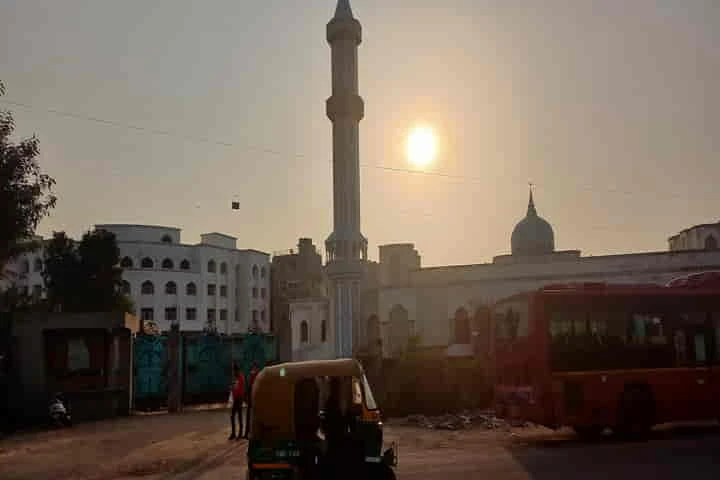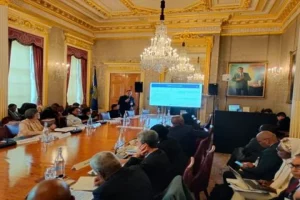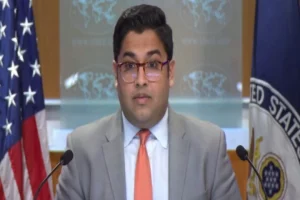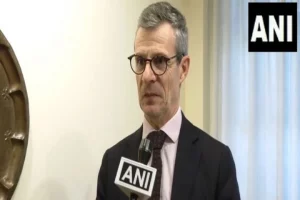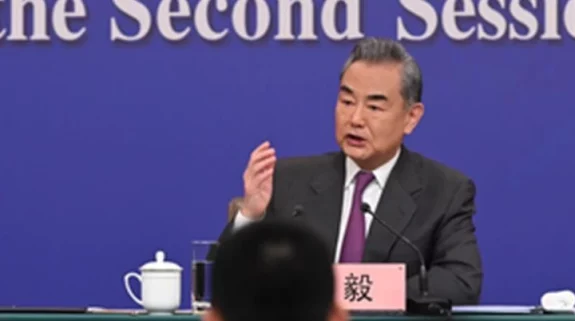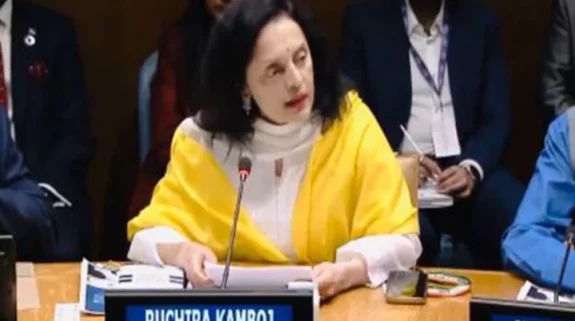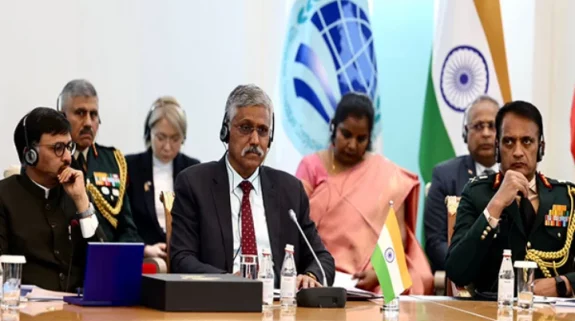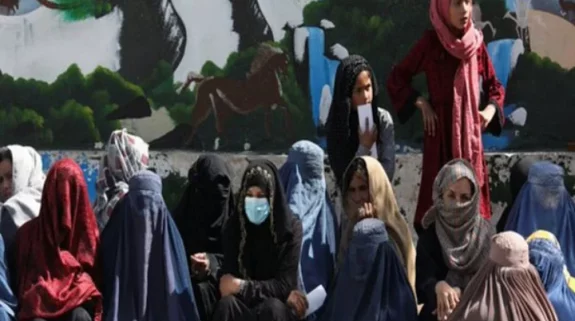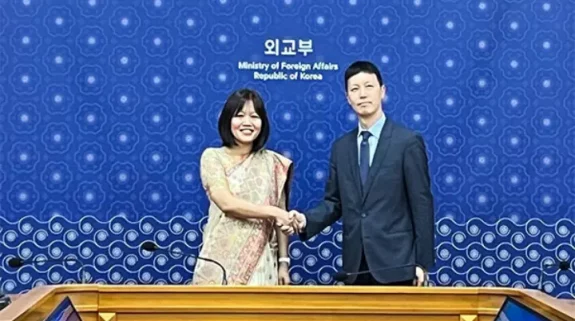Jamia Nagar, the largest and arguably the most educated Muslim colony of India, exhibits a unique mix of modern and traditional religious education being imparted to students coming from every nook and corner of the country. Apart from Jamia Millia Islamia, three grandest educational buildings in the area are not private schools, but three madrasas situated in the famous Shaheen Bagh sub-locality of the area, which is on the Kalindi Kunj Road along the Yamuna.
Madrasa Ahl e Bait, Zayed Girls College and Jamia Islamia Sanabil are three institutes educating more than 2,000 Muslim students — both boys and girls — to equip themselves with knowledge of deen (religion) and duniya (mainstream modern education) charging nominal fee or no fee at all. All three are residential institutes and have hostel facilities.
Like most schools and colleges in India, these modern madrasas are presently closed due to Covid-19 pandemic and will likely resume educational activities as soon as the government gives the nod.
Interestingly, these madrasas started as traditional Islamic seminaries that can be seen in every Muslim-populated city, qasbah and village of the country. And they would only teach deeniyat (religious syllabus) prescribed for such seminaries in the beginning. This includes study of Quran, Fiqh (Islamic Jurisprudence), Languages (Arabic, Persian and Urdu), Hadith, etc. However, as the voices rose to modernise madrasas from both within and outside the Muslim communities, these seminaries decided to reform in tune with the demands of the time.
Madrasa Ahl e Bait
Established by noted Shia scholar, Maulana Syed Mohammed Askari, the Madara Ahl e Bait is one of the oldest seminaries of Jamia Nagar. It was established in 1996 as a simple madrasa, teaching few Shia students, preparing them to become Alai. Aalim literally means scholar. However, in seminary parlance, it is the second highest degree awarded to students.
The madrasa was affiliated to the UP-madrasa board when it was established.
“Initially, the madrasa was started in a chaardiwari (fence) and few rooms. It was free of cost and mostly, children of underprivileged backgrounds would come here to learn our basic course in deeniyat. Slowly, we expanded it and started a six years course to prepare them for a degree called Hujjat Ul Afazil (which is considered equivalent to M.A. in some Indian universities and also enjoys the same status in Iran). Our institute made all our students completely dexterous in Islamic Studies and languages like Arabic and Persian. Many of them went on to study these subjects in popular Indian universities like JNU, JMI, AMU and Lucknow University. More importantly, Iranian universities like Al Mustafa University, Qom, opened its doors for our students to enrol there as research scholars and pursue PhDs. Many of such students are employed all over the world now in various fields,” said Ali Askari, son of Mohammed Askari.

Ali added that as it was realised that only Islamic education and expertise in languages was not enough and that there were shrill calls all over the country to streamline madrasas and attune them to the demands of the modern world. Consequently, the madrasa in 2009 started teaching CBSE syllabus along with compulsory deeniyat.
“Following the new system, we teach students as per regular CBSE pattern up to Class 10. These students are just like normal private or government school students. Their eight periods are reserved for their normal syllabus and it is only in the 9th period, they are taught basic Islamic learning. This way, they also remain connected with their basic religious teaching as well,” said Ali.
Ali added that some of the recent alumni of the Ahl e Bait are studying in IIT-Delhi, Maulana Azad Medical College, Delhi, NITS Srinagar, Jamia Millia Islamia, Delhi University (DU) and JNU.
Ali, however, made it clear the CBSE pattern has not been made mandatory for students. It’s open to their choice. “If a student wants to pursue the normal madrasa curriculum, he is free to pursue that as some students may wish to become theologians and experts in languages,” he said.
The madrasa is run by a trust in the name of Ahl e Bait (House of the Prophet) and is headed by Maulana Askari. He does not divulge details about how the trust manages funds to run the madrasa. But it is assumed that like most seminaries, Madrasa Ahl e Bait also runs on donations, even possibly from countries like Iran.
Zayed Girls College (Jamia Tul Banat al-Islamia)
Jamia Tul Banat al-Islamia or Zayed Girls College is said to be one of the best non-government residential schools for girls in entire Delhi. Its origin is apparently quite fascinating. Late Islamic scholar Maulana Mohammed Ilyas Barabankvi started it in a house at Hazrat Nizamuddin area near the Hazrat Nizamuddin Dargah. At that time, it was the only such institute for Muslim girls in the capital. Though it was a seminary, it also taught girls English and Science. When some of the girls passed out from the seminary shone in future studies in regular courses, the seminary caught the eye of the community. One of the stories has it that then President of UAE, Sheikh Zayed Al Nahyan, himself provided aid to the seminary and thus it expanded into two campuses, one in Nizamuddin and the other in Shaheen Bagh.
The seminary, on its website, lists noted personalities like Mohammad Rabey Nadwi of Nadwatul Ulema Lucknow, Asad Madni of Jamiatul Ulama-i-Hind, Syed Ahmed Bukhari, Shahi Imam, Jama Masjid, Delhi and Maulana Arshad Madni of Jamiat Ulama-i-Hind as its patrons.

Introducing the institute, Maulana Zakariya, one of the employees at the seminary, said: “In the beginning, the institute kept on providing scientific services as maktab (religious primary school) but the sincere and sympathetic friends of Jamia helped to expand it when they saw that the scientific and religious eagerness is increasing day by day among the Muslim girls. The classes of Arabic, religious and modern education were introduced and thus, the education from elementary class reached VIth standard within five years. These classes consist of Tafseer, Hadith and principles of Hadith, Fiqh and principal of Fiqh, Arabic Literature, Urdu Literature, Philosophy, Etymology and Syntax, etc. According to the demand of recent times, modern sciences (English, Hindi, Mathematics, etc., equivalent to 12th standard of normal Delhi school board pattern or CBSE) have also been included in the course and the skill of housekeeping is also a part of curriculum. The method of teaching is based on a preaching pattern so that the graduate students of this institution can also play a preaching role in the society in future.”
Zakaria added that the seminary has also started a Zayed Public school to enroll students in mainstream private school curriculum. “This school will solely focus on mainstream education. However, if any student chooses to be part of the seminary pattern, she will be allowed for that,” he said.
Zayed College is equipped with a state-of-art library and a separate computer centre to help students. The college attracts girls from all over India and charges only hostel fees that are around Rs 2,000-3,000 per month. “And needy students assisted with concessions too,” said Zakariya.
Zakariya says that the seminary degree (Alimiyat) is recognised by universities like Jamia, AMU, MANUU and a number of alumni are studying and doing various jobs in India and abroad.
Jamia Islamia Sanabil
Unlike Ahl e Bait Madarsa and Zayed College, the Jamia Islamia Sanabil is more madrasa-like, largely focussing on religious studies. The seminary started only in 2017. But it has a sprawling campus and a huge mosque in the middle of it. It has a huge hostel building that can accommodate around 1,000 students at a time. The Jamia teaches traditional Dars e Nizami (the syllabus developed in the 18th century and followed by traditional Islamic seminaries). It provides a degree up to Fazilat (the highest madarsa degree and considered equivalent to B.A. by some Indian universities). “But we also endow modern education like special computer skill classes, Basic Maths, English language proficiency. We are living in Delhi and know the requirements of modern times. Our students come from mostly weaker sections of society and first we need to build confidence in them and then we will prepare them for the world with deen in their veins and knowledge on their lips. Let the pandemic period be over, we will open our campus and march on a journey to make our institution a landmark of knowledge,” said Maulana Arqam, the principal of the Jamia.
(Anas Mohammed is a Delhi-based journalist, specialising on issues related to Muslim Affairs. Views expressed are personal and exclusive to India Narrative)






